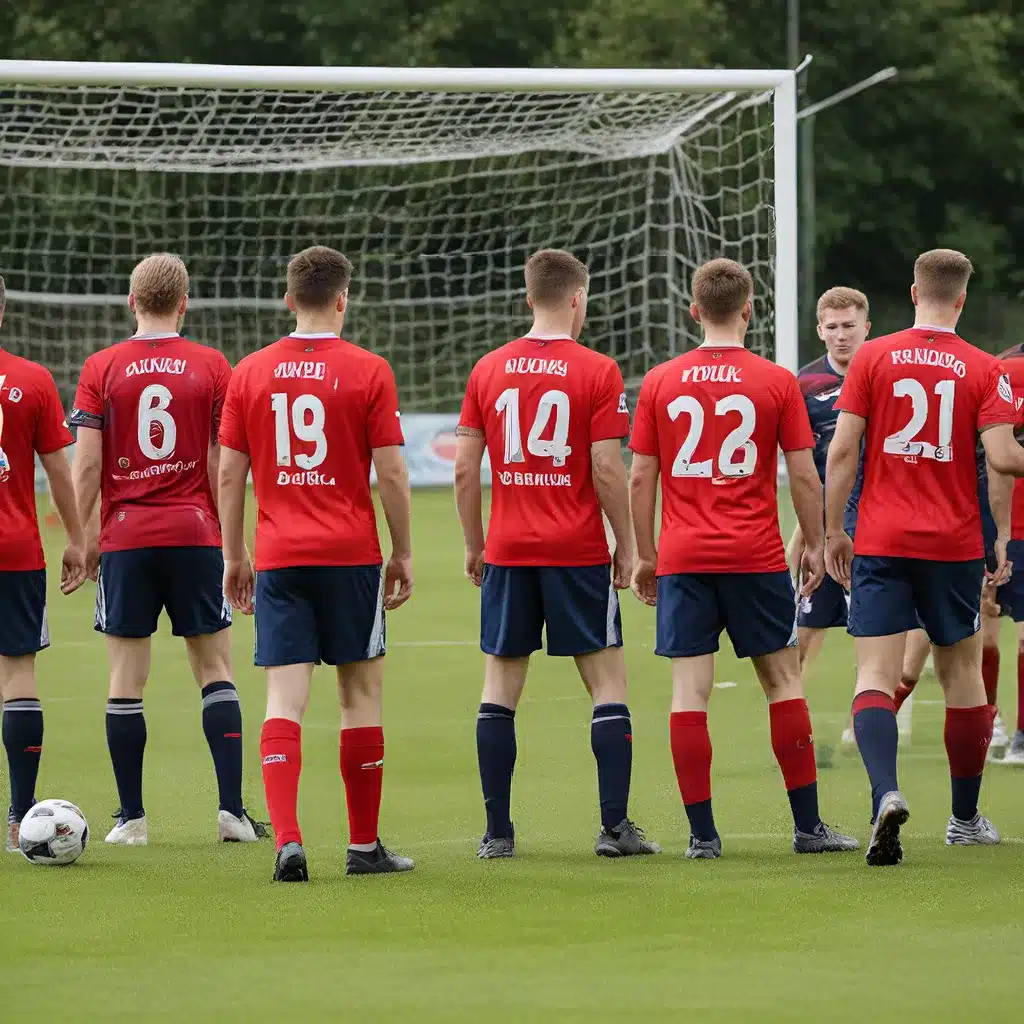
Embracing Green Practices in Local Football
The Kent Football League, a vibrant hub of grassroots football talent in the South East of England, has taken significant strides in recent years to incorporate sustainable practices into the heart of their operations. As the league continues to grow in popularity and community impact, its clubs have recognized the crucial role they play in promoting environmental responsibility and setting an example for local fans and the next generation of players.
One particularly noteworthy initiative spearheaded by the Kent Football League is the league-wide adoption of environmentally-friendly match balls. Traditionally, the production and disposal of synthetic leather footballs have had a significant environmental impact. However, the Kent Football League has collaborated with leading manufacturers to introduce biodegradable and recycled-material balls across all of their matches.
“The switch to sustainable match balls has been a game-changer for us,” explains Simon Giles, the sustainability officer for Whitstable Town FC. “Not only does it reduce our carbon footprint, but it also sends a powerful message to our young players and the wider community about the importance of environmental stewardship in the sport we all love.”
Powering the Pitch with Renewable Energy
Beyond the match balls, the Kent Football League has also spearheaded initiatives to power their stadiums and facilities using renewable energy sources. Several clubs, such as Folkestone Invicta FC and Maidstone United FC, have installed solar panels on their roofs, generating clean electricity to fuel their floodlights and clubhouse operations.
Research has shown that the adoption of renewable energy can significantly reduce a football club’s carbon footprint, while also providing long-term cost savings on energy bills. “The initial investment in solar panels was substantial, but the long-term benefits to both the environment and our bottom line have been well worth it,” says Maidstone United’s finance director, Sarah Langridge.
Greening the Pitch: Sustainable Turf Management
Maintaining the pristine playing surfaces of Kent Football League stadiums is a year-round challenge, but clubs in the league have taken innovative steps to ensure their pitches are cared for in an environmentally responsible manner. Several teams have transitioned to organic turf management practices, reducing the use of synthetic fertilizers and pesticides in favor of more natural and sustainable alternatives.
“We’ve seen a remarkable improvement in the quality and resilience of our pitch since we adopted these organic practices,” says Gareth Stephens, the groundskeeper for Tonbridge Angels FC. “Not only is it better for the environment, but it’s also led to a noticeable enhancement in the overall playing experience for our athletes and fans.”
Reducing Waste and Promoting Recycling
In addition to their efforts on the pitch, Kent Football League clubs have also implemented comprehensive waste management and recycling programs to minimize their environmental impact off the field. From installing recycling stations throughout their stadiums to partnering with local waste management providers, these initiatives have helped to divert tons of waste from landfills and promote a culture of sustainability among players, fans, and the broader community.
“It’s been a real team effort to get our recycling program up and running,” says Gillingham FC’s sustainability coordinator, Emma Watkins. “Our fans have been incredibly receptive to the changes, and we’re seeing a tangible difference in the amount of waste generated on match days. It’s a small but meaningful step towards a greener future for Kent football.”
Building Connections, Inspiring Change
The Kent Football League’s commitment to sustainability extends beyond their own operations, as the league actively seeks to engage with local schools, community groups, and environmental organizations to promote the importance of sustainable practices in sport.
“We believe that by fostering these connections and inspiring the next generation of football enthusiasts, we can have a lasting impact on the environmental consciousness of our community,” says Kent Football League CEO, David Sharpe. “From hosting youth clinics focused on eco-friendly football to partnering with local charities on tree-planting initiatives, our clubs are dedicated to being catalysts for positive change.”
Embracing the Future of Sustainable Football
As the Kent Football League continues to lead the way in sustainable sports practices, the clubs and their dedicated fans are excited to see what the future holds. With a steadfast commitment to innovation, collaboration, and community engagement, the league is well-positioned to set the standard for environmentally responsible football in the UK and beyond.
“The journey towards sustainability in the Kent Football League has been both challenging and immensely rewarding,” reflects Whitstable Town’s Simon Giles. “But as we look ahead to the next season and beyond, we’re confident that our collective efforts will inspire other local leagues and clubs to follow in our footsteps. After all, the future of our sport – and our planet – depends on it.”
Numerous studies have highlighted the positive impact that environmentally-conscious sports organizations can have on their local communities, from reducing their carbon footprint to inspiring behavioral change among fans and athletes. The Kent Football League’s unwavering commitment to sustainability stands as a shining example of the power of grassroots sports to drive meaningful environmental progress.
As the teams take the pitch for the upcoming season, the fans of the Kent Football League can take pride in knowing that their beloved clubs are not only competing for trophies, but are also leading the way in creating a more sustainable future for the sport they cherish. With each kick of the ball, the league’s green initiatives continue to take root, transforming the landscape of local football and inspiring a new era of environmental stewardship.

